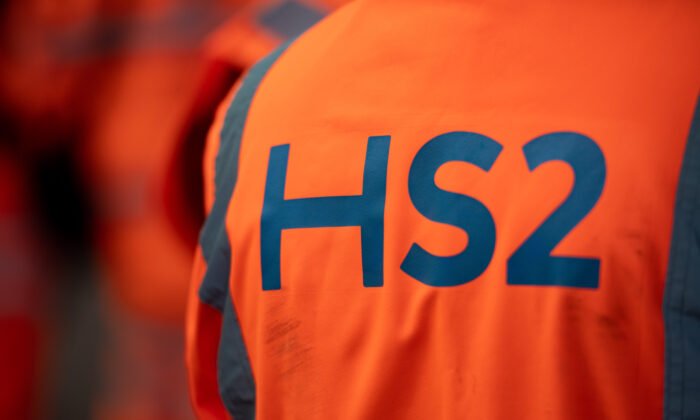Commons Committee Finds HS2 to Provide Inadequate Value for the Money
The Public Accounts Committee reported concerns over the financial viability of the HS2 project, after its northern leg was cancelled last year.
Britain’s High Speed 2 (HS2) railway line offers “very poor value for money” to taxpayers, a government committee has concluded.
Ministers voiced concerns around the project’s poor cost management.
The remaining part of the line, Phase 1, is set to link London’s Euston to a new station at Birmingham Curzon Street. The project also includes new stations at Old Oak Common, in northwest London, and Birmingham Interchange, near Solihull.
“The cancellation of the latter stages of the HS2 programme and operating just Phase 1, from London to the West Midlands will achieve poor value for money for the taxpayer,” PAC said.
The Department for Transport (DfT) and HS2 Ltd. don’t know the final benefits of the programme, while its costs will significantly outweigh the benefits, PAC added.
Last year, the HS2 Ltd. board advised the government on the updated cost for Phase 1, which increased from £49 billion to £57 billion at 2019 prices. The company then added a further £8–10 billion to the cost, resulting in a total of up to £67 billion.
“This is of great concern given the scale of the challenge they face in resetting the programme to complete Phase 1 and manage the closedown of the other phases, for example in disposing of land and property no longer needed,” PAC said.
Under safeguarding measures, the HS2 land was protected from conflicting developments. The DfT plans to sell any property that is no longer required for the project. Areas such as Cheshire, Derbyshire, and Lancashire will be affected.
“There is a moral expectation that government should expedite opportunities for people who wish to buy back their land and property where they have been required to sell it,” the report said.
Private Funding
The DfT disagreed with PAC’s cost projections. A DfT spokesperson said that the committee’s Phase 1 calculations didn’t account for the decision to secure private funding for Euston, or the direction not to proceed beyond the Midlands.
“Our plans for Euston have already received extensive support from the private sector to invest and will offer a world class regeneration opportunity, mirroring the successful King’s Cross and Battersea and Nine Elms development programmes,” the spokesperson said.
Ministers remain “highly sceptical” that the DfT “will be able to attract private investment on the scale and speed required to make the London terminus station a success,” PAC said.
According to the government, its plans for Euston have already received extensive support from the private sector to invest.
PAC said there isn’t yet a list, with expected costs and benefits, of what projects the DfT expects will be delivered over the long-term with the redirected funds. Ministers called on the government to report to the committee on its private funds plans.
The DfT also told PAC that it was more cost effective to complete Phase 1 than cancel it. Abandoning the whole project would incur approximately £11 billion of remediation costs, in 2019 prices.
Phase 1 of the HS2 is estimated to be complete between 2029 and 2033, with HS2 Ltd. aiming for 2030.






